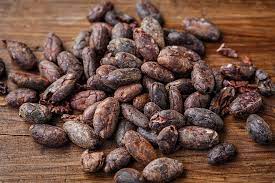
Cocoa is one of the most important crops in Nigeria and plays a crucial role in the country's economy. Nigeria is the fourth-largest producer of cocoa in the world, after Ivory Coast, Ghana, and Indonesia.
The cocoa industry in Nigeria has a long and rich history, dating back to the 19th century, when cocoa was first introduced to the country by the Portuguese.
The earliest cocoa farms in Nigeria were in Bonny and Calabar in the 1870s but the area proved not suitable for cultivation. In 1880, a cocoa farm was established in Lagos and later, a few more farms were established in Agege and Ota.
From the farms in Agege and Ota information disseminated to the Yoruba hinterland about cocoa farming, thereafter, planting of the tree expanded in Western Nigeria.
Farmers in Ibadan and Egba land began experimenting with planting cocoa in uncultivated forests in 1890 and those in Ilesha started around 1896. The planting of cocoa later spread to Okeigbo and Ondo Town both in Ondo State, Ife and Gbongan in Osun State and also in Ekiti land.
Before 1950, there were two main varieties of cocoa planted in Nigeria. The major one was Amelonado cacao which was imported from the upper Amazon river Basin in Brazil. The second was a heterogeneous strain from Trinidad. The Amelonado pods are green but turning yellow when ripe but the Trinidad variety is red.
Cocoa production in Nigeria is mainly concentrated in the southern part of the country, particularly in the states of Ondo, Osun, Ekiti, and Cross River. These states have a favorable climate and soil conditions that are ideal for cocoa cultivation.
The crop is grown by smallholder farmers, who typically own less than five hectares of land. Nigeria's climate supports production of beans from October to June. This relatively long cocoa production period facilitates one million, four hundred thousand (1,400,000) hectares of farmland being cultivated.
The cocoa industry is a significant contributor to Nigeria's economy, with a large number of local industries relying on cocoa as a key ingredient for their products. If you're looking to start supplying cocoa to local industries in Nigeria, there are a few key steps you should follow.
Research the Market
The first step to starting a cocoa supply business in Nigeria is to research the market. You need to have a clear understanding of the demand for cocoa in the local industries, the types of cocoa that are in demand, and the current prices of cocoa in the market.
This information will help you determine the viability of your business idea and create a solid business plan.
Develop a Business Plan
A business plan is essential for any business, and a cocoa supply business is no exception. Your business plan should include information on your target market, your competitors, your pricing strategy, and your marketing plan.
It should also outline your financial projections, including your start-up costs, revenue forecast, and profit margins.
Register Your Business
Once you have a solid business plan in place, the next step is to register your business. You will need to register with the Corporate Affairs Commission (CAC) and obtain a Tax Identification Number (TIN) from the Federal Inland Revenue Service (FIRS).
You should also obtain any necessary licenses and permits required to operate a cocoa supply business in Nigeria.
Source Your Cocoa
The next step is to source your cocoa. You can purchase cocoa beans directly from farmers or through cocoa buyers. It's important to ensure that the cocoa you purchase is of high quality and meets the standards required by local industries.
You may also want to consider working with a cocoa broker who can help you source cocoa and negotiate prices on your behalf.
Transport Your Cocoa
Transporting your cocoa from the source to your warehouse or processing facility is a crucial part of the supply chain. You can transport your cocoa by road and If you're transporting cocoa by road, you will need to ensure that you have the necessary permits and licenses required for transporting goods.
Market Your Cocoa
Marketing your cocoa is essential to the success of your business. You can market your cocoa by attending trade shows, networking with local industries, and advertising in relevant publications. You may also want to consider creating a website or social media presence to showcase your products and services.
Build Relationships with Local Industries
Building relationships with local industries is critical to the success of your cocoa supply business. You should focus on building long-term relationships with your clients and delivering high-quality products consistently. You may also want to consider offering incentives or discounts to encourage repeat business.
Monitor Your Finances
Finally, it's essential to monitor your finances closely. You should track your expenses, revenue, and profit margins to ensure that your business is profitable. You may also want to consider working with an accountant or financial advisor to help you manage your finances effectively.
In conclusion, starting a cocoa supply business in Nigeria requires careful planning, research, and execution. By following these steps, you can create a successful cocoa supply business and contribute to Nigeria's thriving cocoa industry.
The Cocoa Farmers Association of Nigeria (CFAN) has expressed determination to meet the five hundred thousand (500,000) tons production of cocoa beans in the next two (2) years and make the country to become the highest cocoa producer in West Africa in the next five (5) years.
Cocoa is an important industrial raw material and there is large, growing and sustainable market for the product. Supplying cocoa to local industries in Nigeria is a very lucrative business that would generate a lot of revenue for the investors.






















